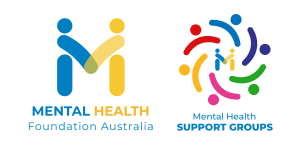Anxiety Support Group
Due to facilitation requirements this group will start in March.
Our anxiety support group offers attendees the opportunity to discuss their anxiety and help them learn how to deal with their fears, knowing they are not alone. The caring and sharing of the group offers relief from isolation and loneliness. Carers need to email supportgroup@mhfa.org.au to check their suitability to attend group meeting. Each MHFA Support Group is free.
Session 1: Face-to-Face
Anxiety Support Group
Schedule
Every first Tuesday of the month from March
6:30pm - 8:00pm
Mental Health Foundation Australia
How to get there?
Face-to-Face sessions are conducted at the Mental Health Foundation Australia located at G1, 10 Yarra Street, South Yarra VIC 3141.
If you plan to attend in-person, public transport is the easiest way to access the Wellness Hub. Private parking is available in the area- please be aware of closing times.
Session 2: Online
Anxiety Support Group
Schedule
Every third Monday of the month from March
6:30pm - 8:00pm (Melbourne Time)
Online session via Zoom
How to attend a online session?
Online sessions are conducted on Zoom.
Trouble accessing Zoom? Click here
Note: Our online groups are available to you from anywhere and everywhere, wherever you are in the world.
Troubleshooting tips for Online Meetings
- If you are having trouble connecting you could try clearing your browser cache.
- There are instructions for this for Chrome, Firefox, Edge and Safari.
- You could also try restarting the Zoom app on your computer or mobile device.
- Zoom do offer some technical support with a knowledge base and customer support.
Unfortunately the MHFA can do very little to assist with connection issues as Zoom is a 3rd party application and out of our control.


